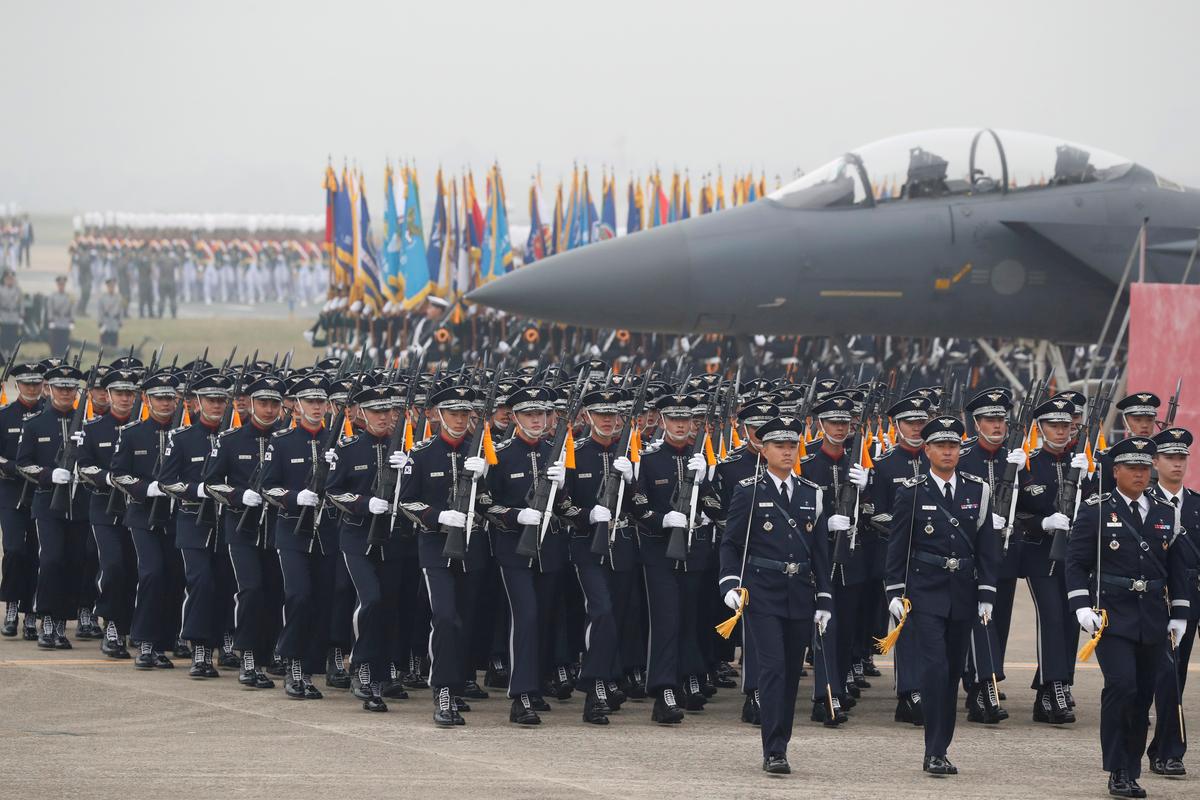WASHINGTON (Reuters) – When U.S. Defense Secretary Mark Esper rang his South Korean counterpart this week, he pressed for a deal quickly on defense cost-sharing that President Donald Trump expects will translate into much higher contributions from Seoul.
FILE PHOTO: South Korean Army soldiers participate in a ceremony to mark the 71st anniversary of Armed Forces Day at the Air Force Base in Daegu, South Korea, October 1, 2019. Jeon Heon-kyun/Pool via REUTERS/File Photo
But current and former U.S. officials say privately there appears to be little hope of clinching a new agreement in the coming days, and some wonder about the coming weeks and months.
Trump, they say, already rejected what was probably Seoul’s best offer ahead of its mid-April parliamentary elections – an increase of at least 13% from the previous accord, two of the officials said.
That offer and decision to reject it by the U.S. president, the details of which have not been previously reported, leaves the United States and South Korea at an impasse, even as outbreaks of the coronavirus threaten to undermine U.S.-South Korean military readiness for any potential conflict with North Korea.
But experts on the U.S.-South Korean relationship say the greater risk is damaging the alliance, born out of the Korean War, which still remains popular in South Korea.
Some 28,500 American troops are deployed to South Korea, in what is seen as a deterrent to Pyongyang that also sends a message to China about U.S. influence and capability in Asia.
Trump’s view that wealthy South Korea, which has an economy larger than Australia’s, is taking advantage of the United States is increasingly being met in Seoul by a perception that Washington has become a transactional partner with unreasonable demands.
“The current gridlock is there because they made excessive demands in the first place,” said one South Korean official with knowledge of the talks.
Trump’s decision to reject the South Korean offer came last week after consultations with Esper and U.S. Secretary of State Mike Pompeo, officials say. It followed months of intense negotiations that saw South Korea eventually propose to pay more money than ever before as part of a new Special Measures Agreement (SMA).
But Seoul’s proposed increase was far below even the substantiall

